The best new albums this week
The week’s must have albums
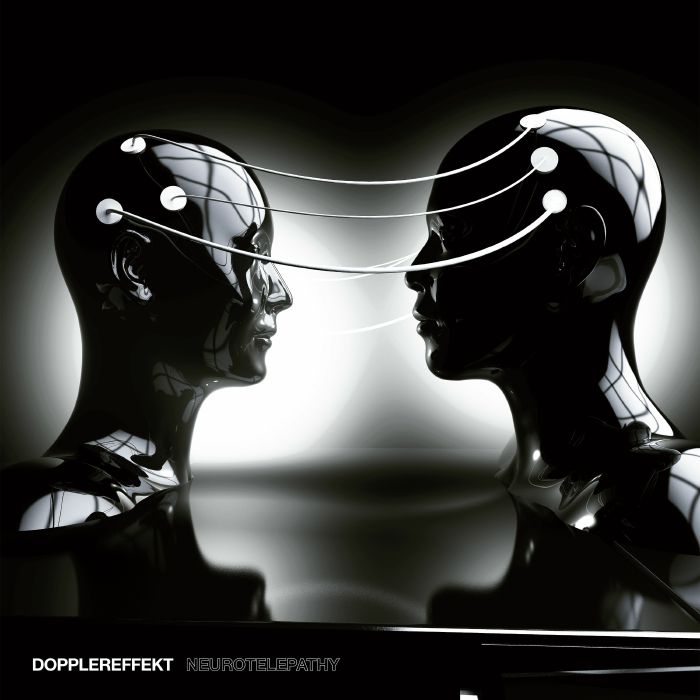
Dopplereffekt – Neurotelepathy (Leisure System)
From the erotic machine funk of their seminal early singles to the wild expanses of Calabi Yau Space and on to 2017’s Cellular Automata, Dopplereffekt have evolved considerably on a trajectory distinct from Gerald Donald’s Drexciyan roots. Of course there’s a strong sonic imprint which tells you this comes from the same universe as Donald and James Stinson’s influential works, whether under the guise of Arpanet, Transllusion, Der Zyklus, Japanese Telecom and so forth. But alongside Michaela To-Nhan Bertel, Donald has been able to apply a certain experimental rigour with Dopplereffekt which leaves possibilities wide-open with new releases.
The pair return to Leisure System with a new album developed over the past three years, presented as an extended experiment with implied ideas around machine-human interfaces. This broad subject matter has always driven Dopplereffekt thematically – the vocal hooks of early classics like ‘Pornoactress’, ‘Plastiphilia’ and ‘Sterilization’ all painted an uneasy outlook of our increasing dependence on technology. The opening track on Neurotelepathy, ‘Epigenetic Modulation’, points to this idea as, nearly 30 years on, the intersection of human biology and technology becomes more fundamentally complex.
The atmospheric scene-setting of that opening cut is quickly shaken up though, as ‘Neural Impulse Actuator – Mirror Neuron’ rips into a snappy electro construction which could almost be deemed classic and undoubtedly clubby in its own right. If you were initially expecting another abstract voyage through vivid, angular architecture, Dopplereffekt sound happy to subvert your expectations by delivering something far more immediate. It’s still leagues ahead of your average electro, delivered with ruthless efficiency but bathed in mystery, with the siren call of a female voice (presumably To-Nhan Bertel’s) capturing the ambiguity between organic and synthetic in artful, understated fashion.
Neurotelepathy is also billed as stemming from the experimental approach Dopplereffekt take on stage. More than any other Drexciya-adjacent project, their live presence has felt as vital to the overall mission as the recorded output. With a minimalist but pointed approach to performance, everything about their shows feels so considered and elegant you assume it must be a well-rehearsed, tidily programmed machine. But in fact, they bill these shows as vessels for “experimental trials of theoretical models”, which is remarkable in itself. But there’s an economy in the project’s sound which has a huge part to play in the ability for new avenues of exploration to still come across as clear-eyed and wholly intentional, even if they happen under the duress of an audience. It’s as though simple human emotions like stress can’t interfere with the cold computer logic, which figures.
Musically, this can be felt across the album as there’s an overarching directness to these reliably short and sweet pieces. ‘Neuroplasticity’ is almost anthemic, and with all the conceptual trappings stripped away it would be the pride of any electro producer (although they’d no doubt stretch it out for a few more minutes to fill a side of vinyl). Even the more esoteric approach of ‘Cerebral data download 2100 A.D.’ is still anchored by concise sequences and harmonic chord progressions – it’s as though the human element feels comfortable to stretch out within the circuitry.
Perhaps there are listeners out there who always fawn after the Dopplereffekt of old, where the lofty ideas seemed to come after the low-down funk and thump of the tracks. They might just be won over by the line Donald and To-Nhan Bertel tread on this record. It’s certainly not a case of winding back the clock, but there’s no doubt much of the album bangs. It’s generally assumed you’re signing up for an elevated version of electro when you drop the needle on a Dopplereffekt record, and that’s precisely what you get on this incredible album. It’s their sound, through and through, but despite that it still surprises and shocks with its vivid flair, leaving you wondering just how they managed to up the game yet again.
OW
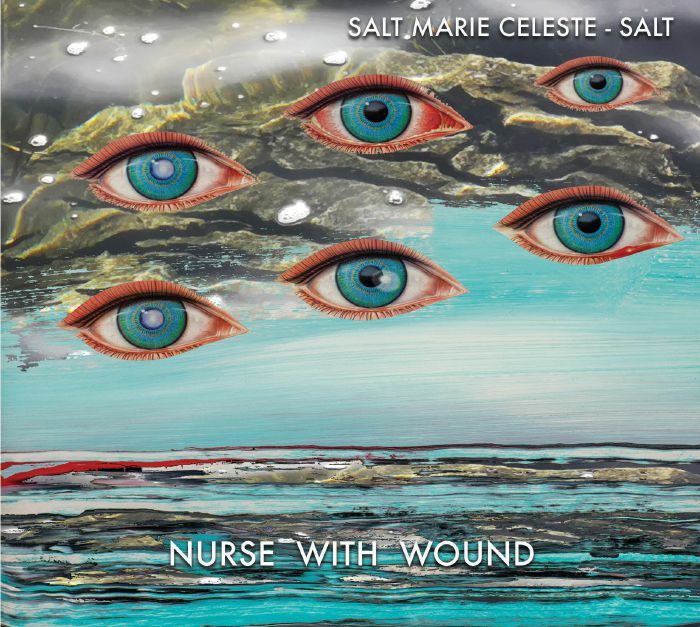
Nurse With Wound – Salt Marie Celeste (Dirter Promotions)
There’s something impenetrable about the Nurse With Wound canon, which is of course entirely by design. As true totems of the UK’s industrial tradition, the loose-fit collective orbiting Steve Stapleton and Colin Potter jettisoned the rigour of musical convention to explore sonic manipulation and world-building on a molecular level, erring towards the unnerving and taking a no-holds-barred approach to releasing. That can sometimes mean wading through obtuse material in search of the truly standout material, but fortunately these days diligent reissue labels tend to do a lot of the dirty work for us. Speaking of which, Dirter Promotions just recently released a high-end CD box set of Soliloquy Of Lilith, a high watermark of NWW’s sprawling discography. Now, they turn their attention to another monument, Salt Marie Celeste.
As is the tangled nature of Stapleton’s work, Salt Marie Celeste isn’t as simple as a standalone piece of music. It’s roots lie in ‘Salt’, a track from Music For The Horse Hospital which was subsequently expanded and looped to soundtrack an exhibition, but on this album that shorter piece gets stretched out over 60 minutes. The nautical imagery informs the way the information is received, and indeed the overbearing sound is one of slow, huge waves rolling with thunderous purpose overhead. Beneath that swirls all manner of debris, from dislocated shrieks to incidental clangs, occasional shoals of tonality and persistent creaks. It’s a quiet recording which becomes incredibly claustrophobic when you ramp up the volume to pick out the detail, but the ever-shifting array of sounds has a mesmerising quality which won’t let you go.
As if that wasn’t enough, this new expanded version comes with a second disc which takes you further into the oceanic realms of Stapleton and Potter’s design, presented in a lavish new artwork from Babs Santini, the mask Stapleton adopts for his visual work on much of the NWW catalogue.
OW
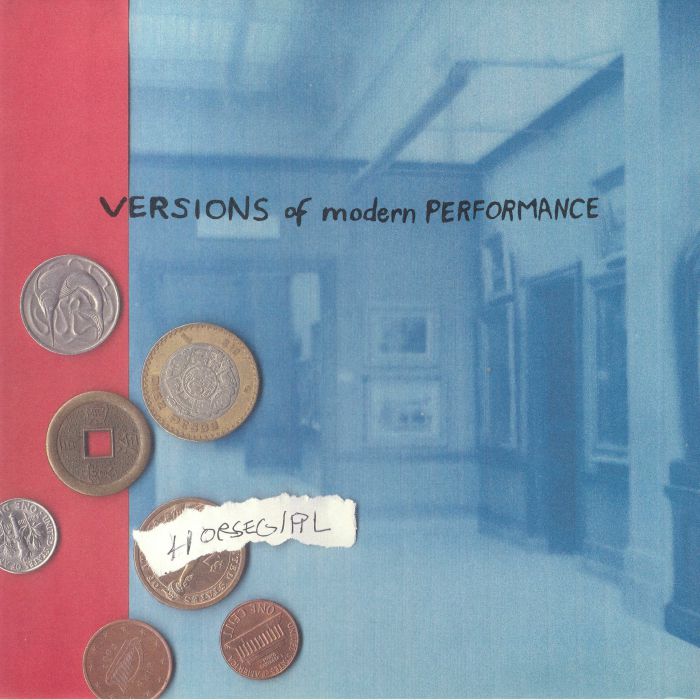
Horsegirl – Versions of Modern Performance (Matador)
Much has been said about Horsegirl’s youth in the run-up to the release of Versions of Modern Performance. The Chicago trio – comprised of high school senior Penelope Lowenstein, and college freshmen Gigi Reece and Nora Cheng – are the emergent band of the city’s ‘Hallogallo’ scene, a cluster of teens whose adoration of 80s and 90s guitar music belies their years.
It’s easy to pinpoint Horesgirl’s myriad of inspirations. Discordant, swirling guitars that recall Sonic Youth, Dinosaur Jr. and My Bloody Valentine all at once; the lo-fi textures of Guided by Voices; the offbeat vocal harmonies of The Raincoats and Stereolab. But to reduce Versions of Modern Performance to a box-ticking exercise in alt-rock touchstones would ignore how well Horsegirl pull each of these off. What’s more is that there’s very little fat here. This is a record delivered with minimum fuss, exactly how the best indie music should sound.
Lyrically, Horsegirl don’t deal in grand poetry or sweeping statements, opting to revel in obfuscation and surreal sketches. This doesn’t mean that the album is devoid of meaning. In fact, the abstract writing and silly song titles enhance their quirky charm. It’s particularly striking on the disarming ‘Beautiful Song’, where they pose the unusual question “When a fly’s stuck in your car, how does it breathe?” Then there’s the hilariously named ‘Dirtbag Tranformation (Still Dirty)’, which fuses sugary hooks with bizarre imagery (“But the stickler sticks his nose into her spine”).
Horsegirl may be heavily indebted to guitar bands of the past, but that doesn’t take away from how compelling Versions of Modern Performance Is. From the tone to the production, this is a lovingly crafted album teeming with an acute knowledge of indie rock history, and one that’s likely to earn them many more plaudits.
MDW
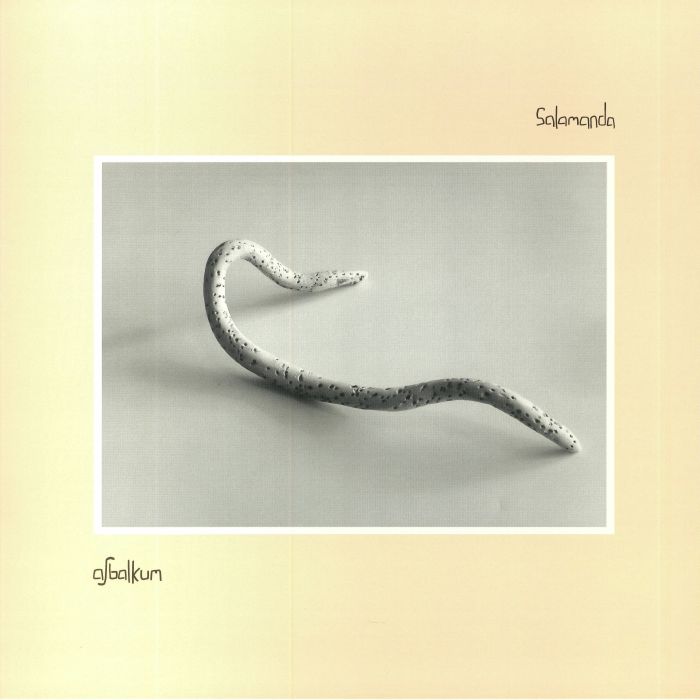
Salamanda – Ashbalkum (Human Pitch)
All too often, harmonically rich, delicately balanced electronica can come off as too damned nice. There’s a fine line between soothing, spiritually cleansing tones and insipid background waft, and in most cases you need a little friction or an unkempt idea to sidle into the mix to add depth or intrigue. Labels like Human Pitch seem to understand this, and even with their relatively modest catalogue over the past few years, the NYC label have become a reliable destination for mellow ambience and abstraction that matches its elegance and melody with that necessary bite. Label co-steer Tristan Arp’s excellent releases are a fine case in point, and Seoul-based duo Salamanda fit right into that particular niche, too.
The pair – named on their Discogs profile as Sala (Uman) and Manda (Yetsuby) – were instantly intriguing when they released their Allez! LP on Good Morning Tapes in 2020, teasing darkness and light, organic and synthetic, through intricate constructions. They had a successful follow up on Métron and now their third LP lands as an assured demonstration of their sound. The drip-drop pulses and breathy vocal pads which open Ashbalkum might well imply the kind of nu-new-age pitfalls that lead to creative ennui, but in fact there’s a giddiness in the layering, a wobbliness in the synth shapes, which makes ‘Overdose’ feel much more engaging than the sound palette might initially imply.
At times the particular melodic choices call to mind Yu Su, another artist who knows how to elicit mystery from the sweetest of musical choices, but more importantly Ashblakum progresses into many different things. ‘Rumble Bumble’ is pointed in its percussive focus, made up of earthen hand drums programmed into a limber funk, while ‘Mad Cat Party’ plays with a subtly glitched rhythmic framework voiced in tongue-in-cheek fashion by Ringo the Cat. The mews are at once ridiculous and totally appropriate as a sound source – not an easy trick to pull off. ‘Coconut Warrior’ also sports a dynamic beat, carrying a panoply of hiccups, whispers and pings that echo the vibrant ecosystems RAMZi sculpts.
With an overall light and airy sound which lets every subtle detail gleam, Salamanda’s third album cements their aesthetic in that loosely defined field of dreamy electronica for sensitive souls. It’s undoubtedly feel-good, but never at the expense of a little freakiness to keep things interesting.
OW
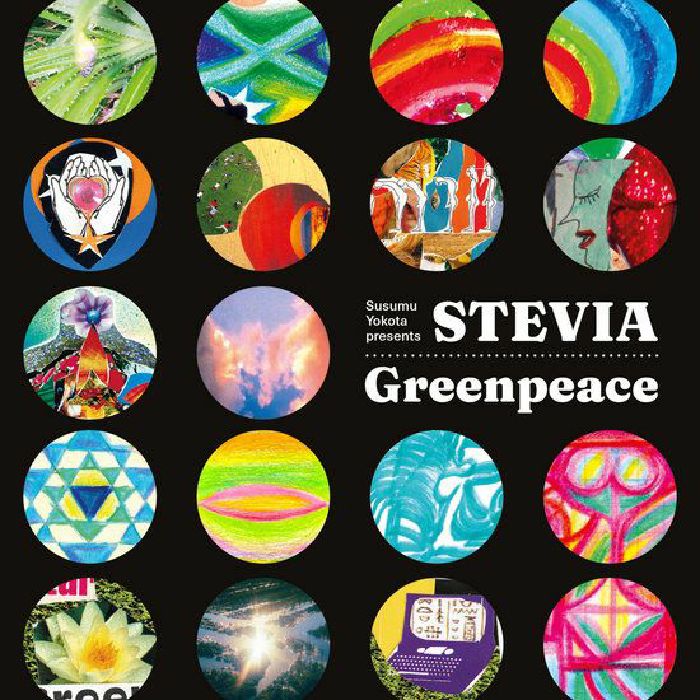
Stevia aka Susumu Yokota – Greenpeace (Glossy Mistakes)
When Berlin does drum n’ bass, it lends it a uniquely smoky and tactile vibe, which the original UK pushers could all but dream of replicating. Such is the marrying of techno and DnB (at least, when it isn’t being pushed in drill n’ bass extremes by Aphex Twin, or being taken to lighter and brighter IDM directions by Forest Drive West).
Russian artist Torn heads in the only other direction there is to go. Debuting ‘47028’ for Tommy Four Seven’s label 47, his is an intriguingly flow-static hardcore release that instantly recalls the visual worlds of future-dystopian gameworlds like Terminator, AEVA Online or Metal Gear Solid. If that album cover wasn’t an indication enough – a steel-capped 47 logo mixed with a rippling thunder effect, the atmospheric equivalent of a dusty storm cloud in a warzone – then we’re not sure this release is for you.
However, for those with a penchant for future-sonic world wars, this one’s for you. The track ‘Tantrum’ is expositional enough. Reese basses soar overhead like warships, while thunderous kicks plod onwards like robotic infantries below. It’s tame by comparison to ‘Grief’, though, which urges forward through uncertain darkstep and halftime tropes, breaks weaving around beats like hyperaroused lapses in attention. It’s as though our microchipped limbic brains are desperately searching for airdropped supplies in an inhospitable desert. ‘Ferrum Wood’ closes on a remarkably similar note to ‘Grief’ (we’d wager the tracks were made in the same project file), albeit by fusing the 4×4 sludge of the A track with the tempo of the B1. Cerebral sonic bloodshed.
JIJ
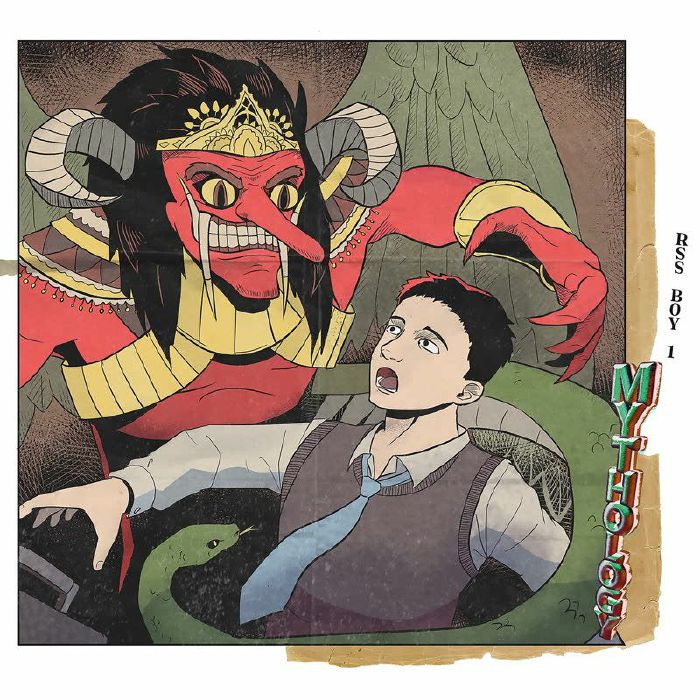
RSS Boys1 – Myth00gy (Gustaff)
RSS B0YS appeared and disappeared without warning in 2012, manifesting as two humanoid figures in colourful garb and strange burka-ish headpieces, who stood behind monolithic sound-emitting structures playing ear-splitting techno and noise via an array of modular synths and triggerable electronic pads.
With their real identities not known to a soul (as far as we know), they still managed to play Unsound a couple of times, and they even stopped in for a Boiler Room Poland sesh in 2014. Little more than a couple more images exist of them to date, save for a few images of one of the B0YS standing in a curtained room resembling a darkened Black Lodge.
The B0YS existed as a duo for a time, until parting ways on grounds of creative differences following a spate of international travel. Now RSS B0Y 1 comes to the fore with a solo album ‘Myth0l0gy’ (though we’re not sure which B0Y is which). This is much less a music album than it is an enthralling meditation on modern digitalia and glitched noise, occasionally filtered through the lens of international influences from Japanese folk mythology and to Iranian poetry and traditional music. Choice cuts include ‘P00CH’ and ‘G0DS ARE T00 SHY’, maddening tracks that do justice to their featuring artists (Arash Bolouri and Adam Witkowski) as much as they are dystopic, discordant statements. This is the sound of folk culture getting lost and mired in acceleration electronics; “now you have to live in it”, goes a bleak voice at the track’s end, evidently biting the future bullet.
JIJ
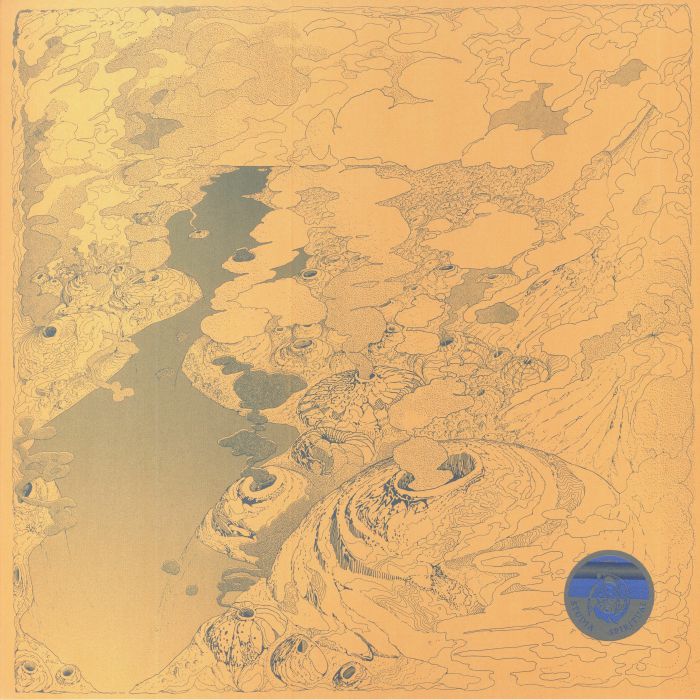
S A D – Studia Spiritual (12th Isle)
The S A D duo of Vlad Dobrovolski and Vasily Stepanov represent a tangled network of electronic psychedelia which exists out of time and place. Their work first came to international recognition through the excellent Udacha label, initially under their P_SH and Fitz Ellarald aliases and then with the Super Sounds II LP in 2017. They’ve since released on Muscut and Gost Zvuk (last year’s outstanding Children Of The Sun tape), continually unfurling a bubbling, teeming strain of electronica which takes the notion of Fourth World music and pings it off into an ever more abstract, playful zone well and truly jettisoned from terra firma.
12th Isle have long been supporters of S A D’s peers from Nikolaienko and Dices to XYR and Flaty, so it feels somewhat natural for this album to arrive draped in one of those stunning Crudex sleeves. Although it serves as a kind of compendium spanning solo P_SH and Dobrovolski / Ellarald tracks and joint efforts, Studia Spiritual doesn’t require navigation through specifics of who made what. It spills forth in fluttering chimes, loping synth phrases, pattering percussion and washes of delay, impulsive in its orientation and unerringly beautiful. It’s far more satisfying to bask in the alien elegance of it all, occasionally marvelling at misfit sounds like the starkly earthen sound of Anton Ponomarev’s saxaphone cutting through at the end of jovial, ramshackle exotica piece ‘Merging Bottoms’. Startling and yet wholly natural in its execution, nothing sounds quite like what S A D conjure up as they trip through these fantastic spaces of their own curious design.
OW
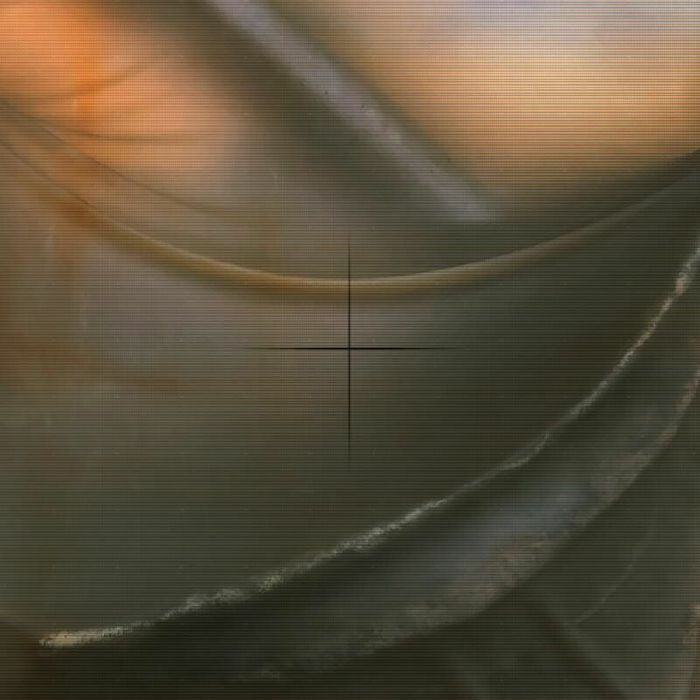
Eric Lanham- Objet Dirt (Soda Gong)
The chances are you won’t have checked Eric Lanham’s work in the past. The Florida-based artist has been active for a long time across a variety of different projects and styles, seemingly following his own interests and striking gold on his own terms. He released an album of futuristic musique concrete 10 years ago on Spectrum Spools, but that doesn’t especially set you up for the hi-tek braindance acrobatics of Objet Dirt. If you’ve been following the Soda Gong label you’ll know they deal in gleaming, modernist electronica with a discernible pulse – it’d be remiss not to shout out Exael’s outstanding Flowered Knife Shadows from last year in that regard.
At one time the arrhythmic systems music readily associated with Autechre seemed beyond the reach of mere mortals, but as tech has progressed so it seems a wider set of artists have been able to dissemble conventional grid structures without losing the techno dimension of machine music. In a similar fashion to the densely detailed glitch-outs of Galcid or indeed Richard Devine’s head-spinning constructions, Lanham sounds as though he was in full control as these chaotic pieces spilled out of his Octatrack circa 2016. Supposedly the sessions were something of a surprise to him, not to be repeated, but ‘happy accidents’ falls short of the sonic prowess on display here. Crucially it’s also musical, as with the molasses-thick synth licks that ooze out of ‘Pritchel’s conclusion, the space-shaping drops in the background of ‘Rasp’ or the urgent arps of ‘Noon Element’.
More than just a feat of crafty engineering, it’s a fine statement of experimental electronics which has plenty to challenge you with, but not at the expense of the listening experience.
OW
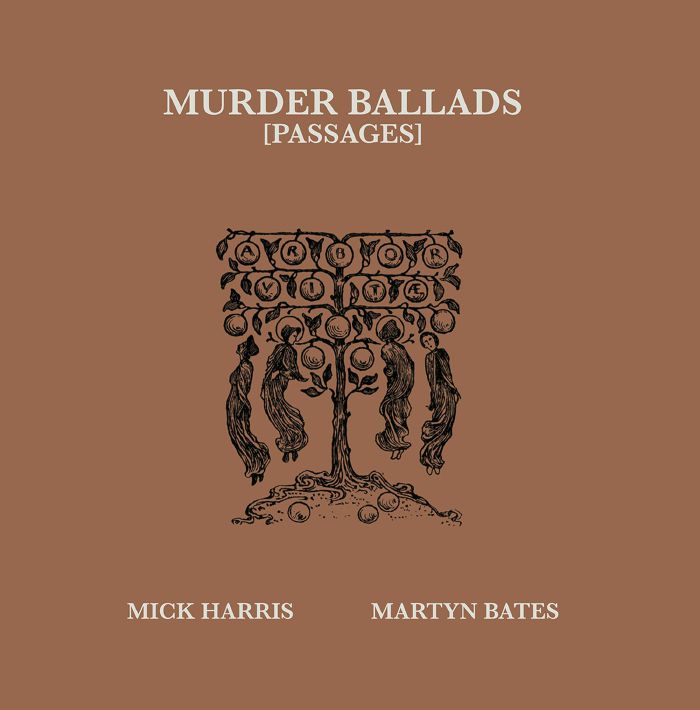
Mick Harris & Martyn Bates – Murder Ballads (Passages) (Sub Rosa)
Anyone with prior knowledge of Mick Harris’ work will know it’s not for the feint-hearted. Beyond his role as the drummer for Napalm Death he’s best known these days for the intensity of his doom-laden dub as Scorn, but he’s got plenty of other stings to his bow. The Lull project in particular saw him delving into bottomless drone soundscapes at the darkest end of ambient, but he also turned that particular approach to a series of albums with Eyeless In Gaza’s Martyn Bates. Murder Ballads is self-explanatory to some extent, as the pair presented the most horrific of folk songs set to Harris’ icy sound baths.
Sub Rosa reissued the first instalment, Drift, last year, and now return for the second volume. The premise is much the same, but no less impactful. The source material is folk in the truest sense – the opening track on Passages is ‘The Bramble Briar’, also known as ‘Bruton Town’ or ‘The Murdered Servantman’, which was performed by Pentangle on their 1968 self-titled LP, but its origins lie in Boccaccio’s 14th Century collection of short stories, The Decameron. Bates’ tender falsetto sings of the brutal sabotage of a servant at the hands of his lover’s family, and the ensuing grief.
The pairing of such a fragile voice and Harris’ monolithic tones is powerful and not a little unsettling. It’s challenging at times to discern the intricacies of the lyrics, but the mood tells the story as much as the words. Crafted in the dimmest of candlelight, sweet enough to enter your dreams from where they can swiftly turn to nightmares, nothing else has ever matched the macabre power of Murder Ballads, rendered here on vinyl for the first time and demanding a slemn, attentive listen with the lights turned way down low.
OW
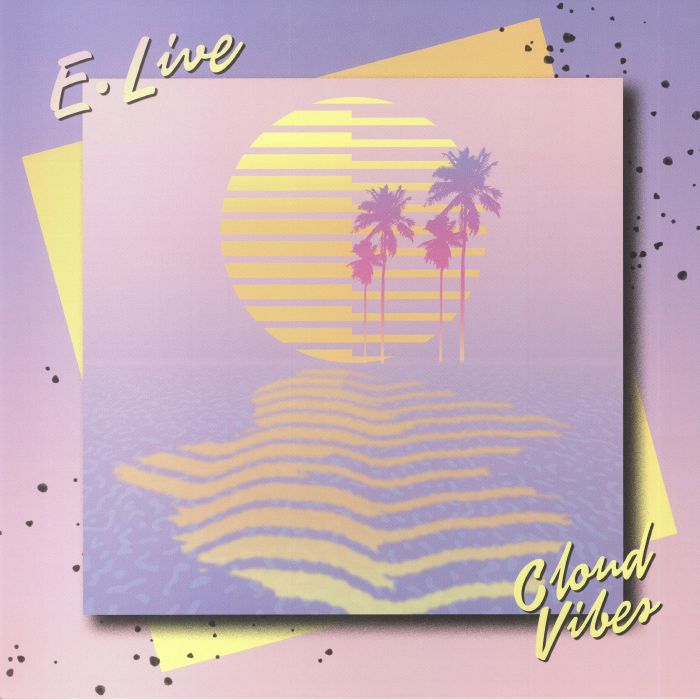
E. Live – Cloud Vibes (Star Creature)
In a match seemingly forged in boogie-funk heaven, E. Live continues his long-running adventures on Star Creatures with his debut solo long-playing record, ‘Cloud Vibes’. Oakland-based Eli ‘E. Live’ Hurwitz has been turning out funk-loaded synth textures for a decade now, serving authentically-spun jams almost exclusively via Star Creature – as well as on the Elivity imprint he runs under the same banner. While his very first album ‘Hard Pressed’ – recorded alongside vocalist Rojai and featuring guest appearances from B Bravo – arrived back in 2012, ‘Cloud Vibes’ sees him go it alone to deliver an impressive 13 tracks on this essential double pack. Fans of his work will know approximately what to expect, and true to form, he doesn’t diverge too far from the tasteful ’80s boogie path here. With rich analogue bass, searing synth solos and floating chords permeating the collection throughout, this is respectfully composed feel-good music that’s sure to score soul-drenched points with electro-funk lovers. Dance-ready fire arrives almost from the get-go, with the sun-drenched strut of ‘You Got Me’ making way for the stirring energy and bass-heavy flex of ‘Slapadelic’.
The psychedelic synth waves and honeyed chords of ‘I Feel It’ bring a lasting smile before the chocolatey synth bass growl and dainty rhythm guitar of ‘Mood Swing’ set an evocative tone. Tender moments are included too, nowhere more acutely than the achingly soulful ‘Wise Up’, where Devaun Bantu’s searing vocal takes centre stage for a slice of California soul that feels as though rescued from 30 long years lost in archival dust. ‘Stranger Dayz’ again lifts the energy with its sublime boogie flex and bittersweet chord progressions, while the Philly strings, live bass and dextrous keys of ‘Last Dance’ add a degree of disco heat to the bubbling pot. Elsewhere, the maniacal drums and jazz-funk motifs of ‘Traffic Jam’ provide a touch of experimentation, before closing track ‘Mount Up’ sees the collection home with its thick chords, slap bass and phasing FM synth solo.
PC
This week’s reviewers: Oli Warwick, Jude Iago James, Matthew D Wakin, Patrizio Cavaliere.